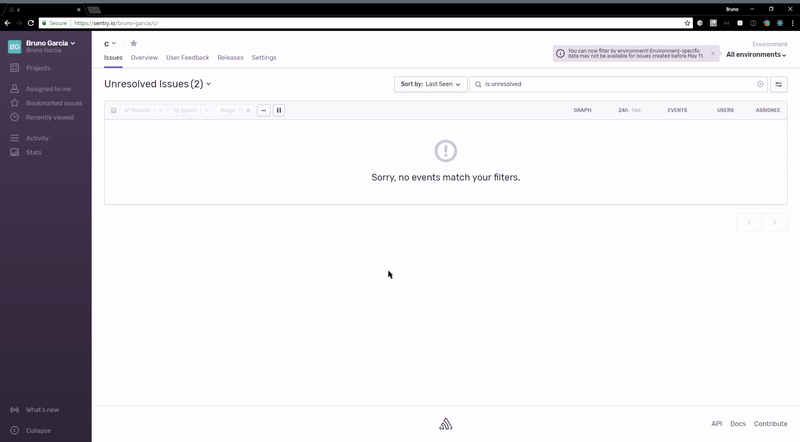log4net
Learn about Sentry's .NET integration with log4net.
Sentry provides an integration with log4net through the Sentry.Log4Net NuGet package.
Without any code change, this package is able to initialize the Sentry SDK and capture events while including additional properties like Exception data and more.
Add the Sentry dependency:
Install-Package Sentry.Log4Net -Version 5.11.2
This package extends Sentry main SDK. That means besides the log4net Appender, through this package you'll also get access to all API and features available in the main Sentry SDK.
Once the log4net integration package is installed in your project, you can modify your configuration file to add the appender. This can be done, for example, via the app.config for console and desktop apps or web.config in case of ASP.NET.
app.config<appender
name="SentryAppender"
type="Sentry.Log4Net.SentryAppender, Sentry.Log4Net"
>
<Dsn value="https://examplePublicKey@o0.ingest.sentry.io/0" />
<!--Sends the log event Identity value as the user-->
<SendIdentity value="true" />
<threshold value="INFO" />
</appender>
Only a subset of the options are exposed via the log4net appender configuration. If you wish to access an SDK option which is not listed below, you'll need to initialize the SDK via SentrySdk.Init instead of doing it via this integration as described below.
In the example above, the SendIdentity flag was switched on. The SDK then will take the log4net Identity value and report to Sentry as the user's id.
Also in the example above, you can find the DSN being set. That will instruct the SentryAppender to initialize the SDK.
This is only one of the ways to initialize the SDK. If you wish to configure the SDK programatically, you could leave the DSN out from the appender configuration section. The SDK needs to be initialized only once and since other integrations (like ASP.NET) are also able to initialize the SDK, you only need to pass the DSN to one of these integrations. One common case to not add the DSN to the XML configuration file (which would initialize it via the log4net integration) is to have full access to the SDK option.
This snippet includes an intentional error, so you can test that everything is working as soon as you set it up.
try
{
throw null;
}
catch (Exception ex)
{
SentrySdk.CaptureException(ex);
}
For a sample app.config or a complete working sample to see it in action.
Our documentation is open source and available on GitHub. Your contributions are welcome, whether fixing a typo (drat!) or suggesting an update ("yeah, this would be better").
